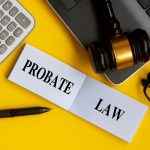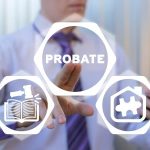Monthly Archives: May 2024

What Happens to a Florida Business After the Owner Dies?
A person’s estate often includes more than personal assets such as their home or car. It may also include their ownership interest in a business. So what happens to that business? The answer to that question will largely depend on how the business itself was legally structured and what plans the deceased made in… Read More »

How Disposing of Non-Probate Assets Differs from Probate Assets
Not all of a person’s assets pass through probate after they die. A common example of a non-probate asset is a retirement account like an IRA. The IRA is effectively a contract between the account owner and the institution that acts as the account’s custodian. This contract includes a beneficiary designation. Upon the account… Read More »

O.J. Simpson’s Executor Quickly Reverses Course on Paying Goldman Wrongful Death Judgment
The recent death of former NFL player O.J. Simpson almost immediately led to a public controversy involving his longtime attorney, who is now the executor of his estate. Specifically, the executor made–and was then forced to backtrack–public comments he made regarding the estate’s liability for a multi-million dollar civil judgment obtained by Simpson’s former… Read More »

Can a Lady Bird Deed Shield My House from Tax Collectors?
Many Florida residents use non-probate transfers to pass their home on to a child or other heirs. For example, with an enhanced life estate or “Lady Bird” deed, the homeowner can reserve the right to continue living in their home until death, at which point the property automatically transfers to one or more “remaindermen”… Read More »

What Happens If You Disinherit an Adult Child in Florida?
Not every parent and child get along. Especially as children grow up and move away, a rift can form with their parents that lasts a lifetime. There are also situations where a parent still has a relationship with their adult child but does not want them to inherit from their estate. So what happens… Read More »

What Happens to the Assets of a Florida LLC When the Sole Member Dies?
Many self-employed individuals in Florida create a limited liability company (LLC) to manage their business. An LLC combines the features of a corporation and a sole proprietorship. That is to say, the LLC protects the individual member’s personal assets from business creditors. But the IRS “disregards” the LLC’s existence for income tax purposes, so… Read More »

Can an Agent Engage in “Self-Dealing” Under a Florida Power of Attorney?
A Florida power of attorney grants an agent the legal authority to take certain actions on behalf of a principal. This creates a fiduciary relationship. So even where a power of attorney grants broad authority, the agent must still adhere to certain basic legal and ethical standards. For example, the agent cannot use their… Read More »

Can You Enforce an Oral Trust in Florida?
One of the cardinal rules of wills in Florida is that they must be in writing. Florida probate courts will not recognize or admit an oral will. Not only must a valid will be in writing, it must also be personally signed by the testator (or someone signing at the testator’s direction) in the… Read More »

Can Someone Force the Opening of a Florida Probate Estate?
The process of administering a Florida probate estate begins with the filing of a petition with the circuit court for the judicial circuit where the decedent–the person who died–resided at the time of their death. In most cases, the petitioner is the person who is either nominated to serve as personal representative of the… Read More »

Are Florida Revocable Trusts Really Private?
An oft-cited benefit of creating a revocable trust is the “privacy” it affords over a traditional will. The reasoning goes something like this: When a will is filed for probate in Florida, it becomes a matter of public record. Indeed, the probate proceeding itself is public, so anyone can learn the contents of the… Read More »

 Mark R. Manceri, P.A. is a boutique law firm that specializes in Estate, Trust and Guardianship litigation. These matters include Will and Trust contests involving lack of capacity, undue influence, forgery, improper execution and tortious interference...
Mark R. Manceri, P.A. is a boutique law firm that specializes in Estate, Trust and Guardianship litigation. These matters include Will and Trust contests involving lack of capacity, undue influence, forgery, improper execution and tortious interference...